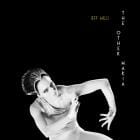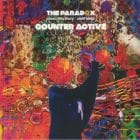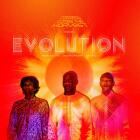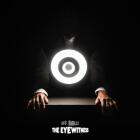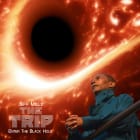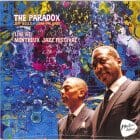
- Label
- Axis
- Catalogue
- AX108
- Eancode
- No eancode
- Format
- 2LP
- Release Date
- Unknown
- Stock
- Out of stock
The Paradox
Live At Montreux Jazz Festival
Jeff Mills - electronics; Jean-Phi Dary - piano, Fender Rhodes, synthesizer; Zaf Zapha - electric/upright bass. With the release of The Paradox: Live at Montreux Jazz Festival, techno legend Jeff Mills and keyboard wizard Jean-Phi Dary embark on an exciting, ground-breaking musical trip that takes Techno and electronic dance music to a new level. In the past Jeff has spoken of the need to, ''take a few steps back and try and assess what has been done, and what might need to be approached to be able to go forward.'' Paradox: Live at Montreux is the result. ''Trying new things is important, it's reminding people we have not exhausted all possibilities with what we can do with electronic instruments,'' he says. Jeff argues that the form of Techno we know today formulated itself around the '80's and the early '90's, after the bang of the rave culture, yet audiences today are still content with the conceptual heritage of Studio 54 and Paradise Garage - that minimal form of music and repetitive loop-form of dance music that everyone dances to today. ''I really think creatively we have exhausted ideas to a certain point and I think it's healthy to look to other genres and the key elements that make them interesting,'' he continues. ''You look and compare and maybe borrow some ideas, and bring those back to electronic music, to see if it can further our creativity.'' The Paradox's direction of travel into unexplored musical territory should come as no surprise since the Original Techno Wizard has never stopped pioneering new ideas. After all, when he originally burst on the scene in Detroit in the 1980s he was ahead of the game - mixing on three turntables, introducing a Roland TR 909 drum machine in his sets, and co-founding Underground Resistance in 1989. Throughout his career he has been exploring the creative possibilities of techno and electronic music, pushing at its boundaries to broaden the music's possibilities, such as introducing a programmatic element to Techno with his the score for the 1927 silent film classic Metropolis or his 2001 classic Time Machine, based on H.G. Wells' novel of the same name. Never content to outstay his welcome by staying in the same place for too long, in 2005 he revealed the breadth of his imagination with his conceptual classic Blue Potential, an album with the Montpellier Philharmonic Orchestra that saw techno happily co- existing alongside symphonic sounds.
